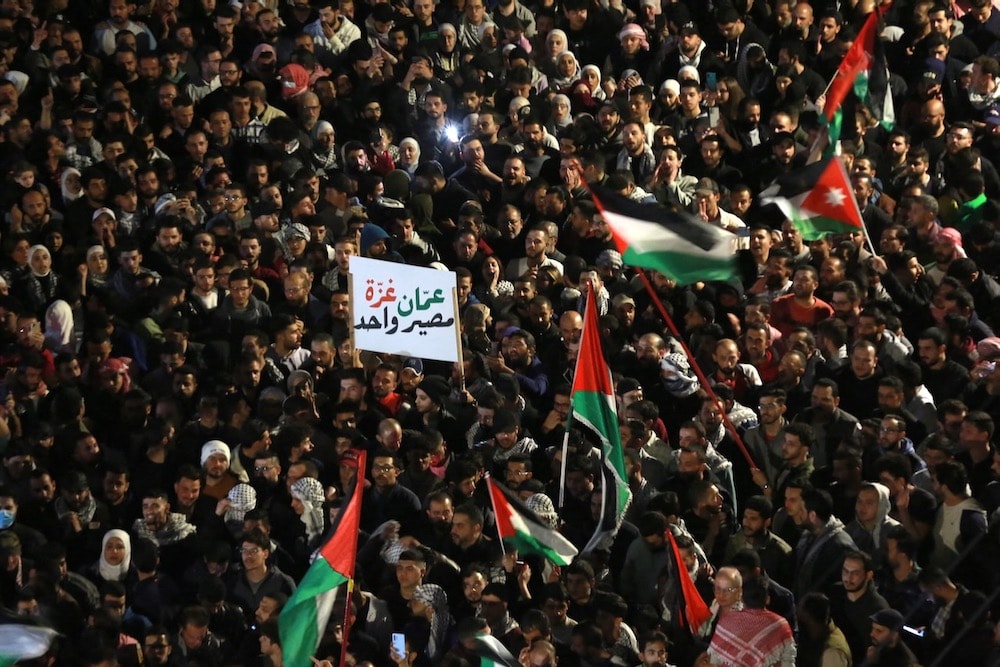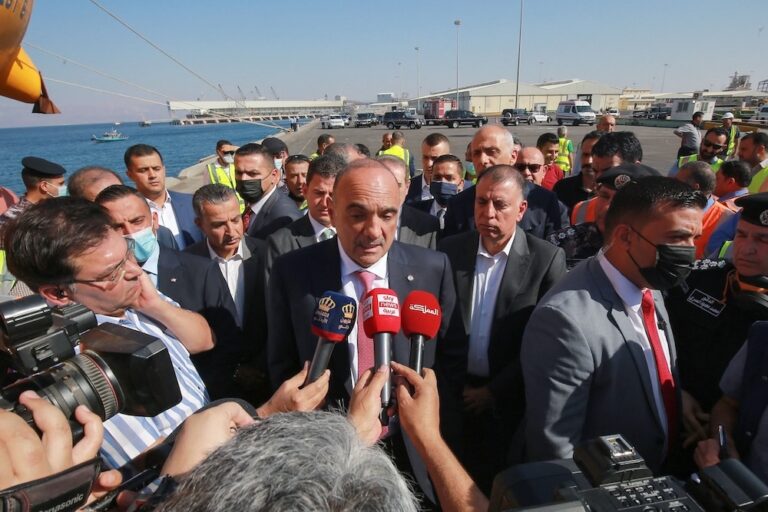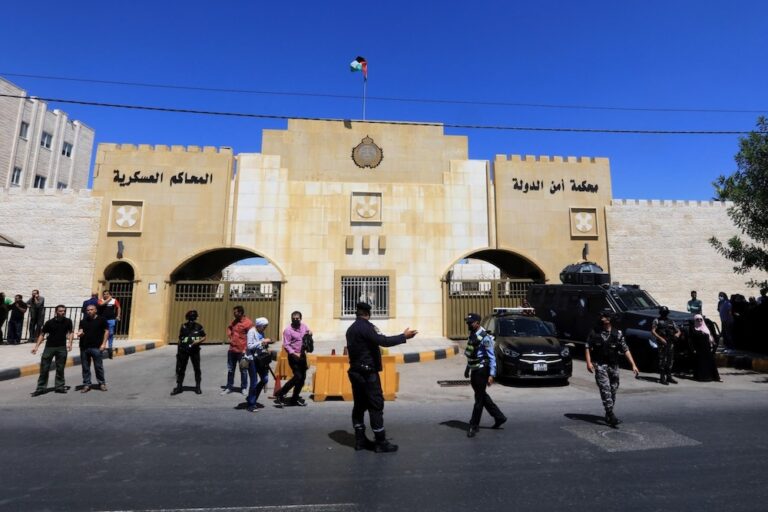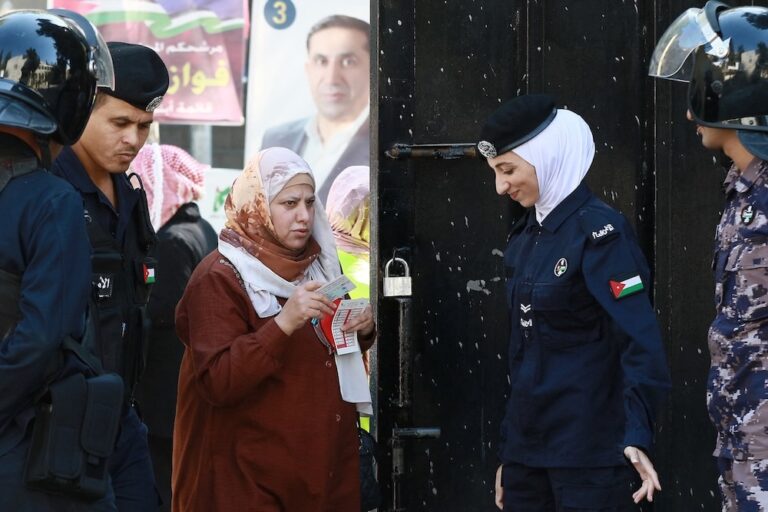The arrests of journalists covering the protests are one of the latest symptoms of the mounting pressure on reporters throughout the region.
This statement was originally published on rsf.org on 5 April 2024.
Reporters Without Borders (RSF) calls on the Jordanian authorities to stop hounding journalists who are just doing their job after three reporters were arrested in the span of 10 days in March while covering protests near the Israeli embassy in Amman against the war in Gaza. The reporter still being held must be released, RSF says.
The 25-year-old journalist who is still detained was reporting for the 7ibernews site and is known by the pseudonym of Charbel al-Disi. He was arrested on 30 March while covering a protest near the Israeli embassy that was held, according to the organisers, to demand the embassy’s closure because of the war in Gaza. He is being held on a charge of participating in an illegal gathering.
The two other journalists were arrested on the same grounds. One was Abdul Jabbar Zeitoun, an independent photo-journalist and documentary filmmaker, who was released on 28 March, a week after being arrested on 21 March while covering one of these anti-war protests.
Zeitoun said that, after handing his camera to his colleague, he was pushed by the crowd towards the police, who then arrested him as a demonstrator, although he immediately identified himself as a journalist to the police. He was transferred to various prison system units until he ended up being questioned by the region’s administrative governor, who acknowledged that he was a journalist but decided to jail him all the same.
“You’re a documentary filmmaker, right?” the governor asked him, before adding that, “prison is full of interesting subjects for you to cover.” The governor then sentenced him to seven days in detention although, according to the law, such a decision should be taken by the prosecutor.
Arabic Post, Khair Al-Jabri was arrested while covering a similar demonstration on 26 March and was held for three days on the grounds that he did not have a press card.
“Covering a demonstration is not a crime. The treatment to which journalists in Jordan were subjected for doing their job to report the news is unacceptable. These detentions restrict press freedom and deter reporters. We call on the Jordanian authorities to put an immediate stop to this intimidation and to release the journalist who is still detained.”
Jonathan Dagher, Head of RSF’s Middle East desk
A woman photo-journalist who did not want to be identified for safety reasons also reported being harassed. She told RSF she was summoned for questioning by the police on 1 April and was interrogated for hours about her work and her “thoughts about Palestine and Jordan.” She was finally forced to sign a “promise” to stop “participating in demonstrations” liable to “endanger the country’s security.” The police also searched her home.
Forced to take precautions
This oppressive climate is increasingly forcing journalists to adopt precautionary measures to avoid being caught in a situation that the police could regard as suspicious. This concerns freelancers in particular. They believe that “nothing can protect them,” said a woman freelancer who also requested anonymity. When covering the protests, she said she “stayed in the middle of the crowd without getting too close to the police” to avoid being arrested. The journalists interviewed by RSF said the police target them directly and try to arrest them to prevent coverage of these now daily protests.
Growing tension in the region
The arrests of journalists covering the protests in Jordan are one of the latest symptoms of the mounting pressure on reporters throughout the region. The violence in Gaza extends beyond its borders and these journalists need protection.
At least 33 journalists have been arrested by Israeli occupying forces in the West Bank since the start of the war in Gaza and Israeli bombardments have killed three journalists covering the war from southern Lebanon. Israel has killed more than 100 journalists in Gaza since 7 October, including at least 22 in the course of their work.



